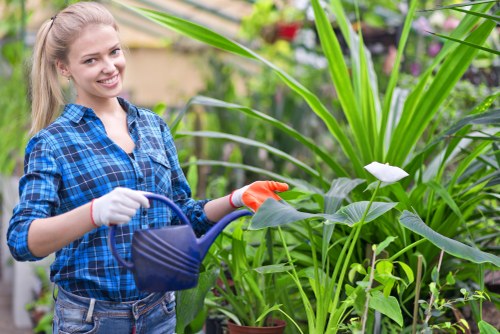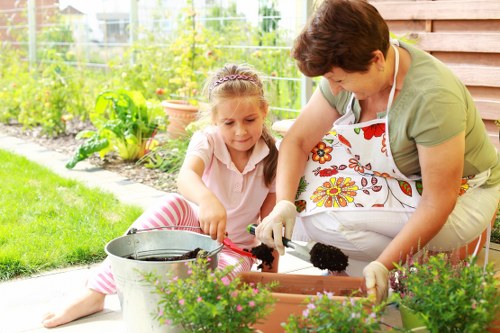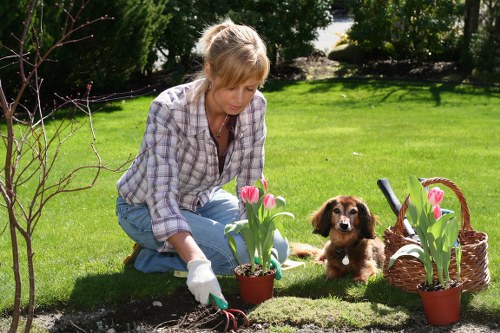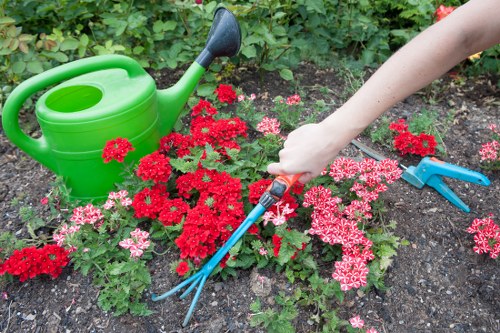Comprehensive Guide to Garden Maintenance in Blackfriars

Maintaining a beautiful garden in Blackfriars requires dedication, knowledge, and the right set of tools. Whether you're a seasoned gardener or just starting out, understanding the unique challenges and opportunities presented by the local climate and soil conditions is essential for creating a thriving outdoor space.
In Blackfriars, the seasonal changes play a significant role in determining the best maintenance practices. From the vibrant blooms of spring to the hardy foliage of winter, each season offers its own set of tasks that help keep your garden healthy and aesthetically pleasing.
Regular maintenance not only enhances the beauty of your garden but also ensures the longevity and health of your plants. By adopting a systematic approach to garden care, you can enjoy a picturesque landscape all year round.

One of the key aspects of garden maintenance in Blackfriars is soil management. The soil quality in this area can vary, so it's crucial to test and amend it as needed. Adding organic matter like compost can improve soil structure, drainage, and nutrient content, providing a fertile environment for your plants.
Additionally, understanding the local climate is vital. Blackfriars experiences a temperate climate with moderate rainfall, which influences plant selection and care routines. Choosing native or well-adapted plant species can reduce the need for excessive watering and chemical treatments.
Pruning and trimming are also essential maintenance tasks. Regular pruning helps promote healthy growth, removes dead or diseased branches, and maintains the desired shape and size of your plants. Using the right tools and techniques ensures that your plants remain vibrant and strong.

Watering is another critical component of garden maintenance Blackfriars. Proper irrigation practices ensure that your plants receive the right amount of moisture without overwatering, which can lead to root rot and other issues. Installing a drip irrigation system can provide efficient and targeted watering, conserving water and promoting deep root growth.
Weeding regularly prevents unwanted plants from competing with your desired flora for nutrients and water. Mulching around your plants can also help suppress weeds, retain soil moisture, and regulate soil temperature, contributing to a healthier garden ecosystem.
Pest and disease management is equally important. Monitoring your garden for signs of pests or diseases allows for early intervention, reducing the likelihood of significant damage. Employing integrated pest management strategies, such as introducing beneficial insects and using organic treatments, can effectively control pest populations without harming the environment.

Fertilizing your garden is essential for providing the necessary nutrients that plants need to grow and thrive. Understanding the specific nutrient requirements of your plants allows you to apply the right type and amount of fertilizer. Over-fertilization can be just as harmful as under-fertilization, so it's important to follow recommended guidelines and adjust based on plant response.
Implementing a seasonal maintenance schedule can help keep your garden on track. From planting in the spring and summer to preparing for winter, a well-planned schedule ensures that all aspects of maintenance are addressed in a timely manner.
Seasonal tasks also include clearing fallen leaves and debris, which can harbor pests and diseases. Cleaning up during the off-season prepares your garden for the next growing cycle, promoting a clean and organized outdoor space.

Garden Maintenance Blackfriars also involves the aesthetic aspects of gardening, such as designing attractive layouts and incorporating various plant textures and colors. Creating focal points with flowering plants or garden structures can enhance the visual appeal and make your garden a delightful retreat.
Lighting is another element that can transform your garden in Blackfriars. Proper lighting not only extends the usability of your garden into the evening hours but also highlights key features and enhances safety.
Lastly, sustainable gardening practices should be considered. Utilizing rainwater harvesting, composting, and choosing eco-friendly materials contributes to a healthier environment and promotes long-term sustainability in your garden maintenance efforts.
